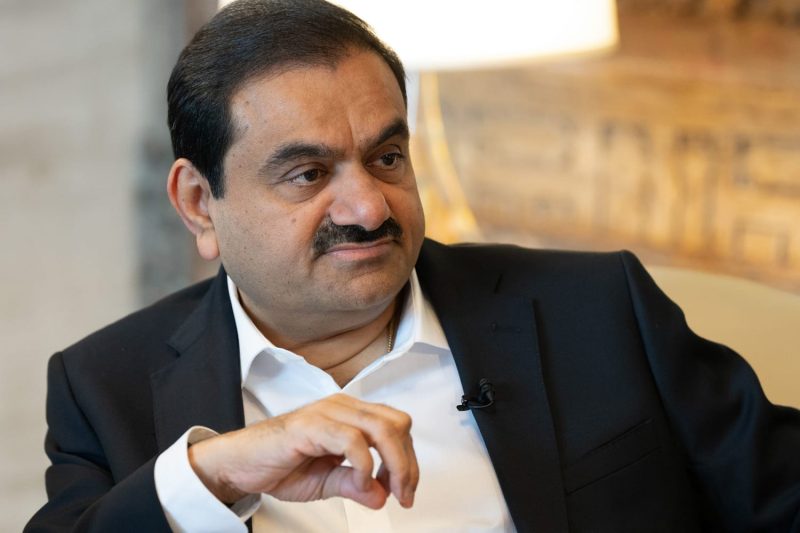SEC Issues Summons for Gautam Adani’s Nephew on Bribery Allegations
The Securities and Exchange Commission (SEC) has recently issued a summons for Vinay Prakash, the nephew of Indian billionaire Gautam Adani, in connection with allegations of bribery. This development has sent shockwaves through the business and financial communities, raising concerns about potential corporate misconduct and corruption at the highest levels.
The allegations against Vinay Prakash suggest that he was involved in a bribery scheme aimed at influencing government officials and securing favorable contracts for Adani Group companies. The SEC’s decision to take action against Prakash highlights the seriousness of the charges and the need to hold individuals accountable for their actions, regardless of their social or economic standing.
Gautam Adani, the chairman of the Adani Group, has built a vast business empire spanning multiple industries, including energy, infrastructure, and logistics. With a net worth exceeding billions of dollars, Adani wields considerable influence in India’s business and political spheres. The allegations against his nephew raise questions about the ethical standards and practices within the Adani Group and the extent to which powerful individuals may exploit their connections for personal gain.
In recent years, there has been growing scrutiny of corporate governance practices and ethical conduct in the wake of several high-profile scandals involving bribery, fraud, and corruption. The SEC’s decision to investigate Vinay Prakash underscores the importance of upholding transparency and accountability in business dealings and ensuring that corporate entities act in the best interests of their stakeholders.
The summons issued by the SEC marks the beginning of a legal process that will determine the veracity of the bribery allegations and the extent of Prakash’s involvement. It also serves as a reminder to companies and individuals about the potential consequences of engaging in corrupt practices and violating securities laws.
The Adani Group, for its part, has denied any wrongdoing and stated its commitment to cooperating with the SEC’s investigation. As one of India’s largest conglomerates, the Adani Group’s reputation and credibility are at stake, making it imperative for the company to address the allegations seriously and take appropriate remedial actions if any misconduct is substantiated.
In conclusion, the SEC’s decision to issue a summons for Vinay Prakash on bribery allegations sends a clear message that no individual or entity is above the law. The outcome of the investigation will have far-reaching implications for the Adani Group, the broader business community, and the state of corporate governance in India. As the case unfolds, it is essential for stakeholders to closely monitor developments and demand accountability and transparency from all parties involved.


























